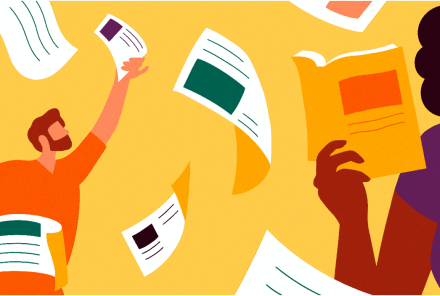Advertisement
This Is The Exact Moment When You Can Stop Yourself From Making Bad Decisions

OK, so you've noticed you're prone to making bad decisions. You think you're going to hit the gym when you leave the office but end up at home on the couch with a bag of veggie chips instead; you plan on saving money for your big romantic vacation at the end of the year but suddenly book a pricey getaway trip for this weekend; your schedule is jam-packed, and yet you inexplicably still agreed to grab drinks with your co-workers tonight. Why?
Don't knock yourself—resisting the temptation to take the easy way out is far from, well, easy. When you've got a million and one things to inject your energy into between the job, the house, the kids, and more, it's only natural to leap for the opportunity to cheat on a few of those responsibilities. Fortunately, new research out of Loyola Marymount University has uncovered the precise moment in which you can stop yourself from letting yourself slip into making a bad decision.
The study, published1 in the Journal of Economic Psychology this month, looked at an experiment in which participants were given a task to complete, but some had an opportunity to "cheat" to get an immediate reward. Some participants were given an opportunity to sit either at a table where nobody could see them or at a table where they knew they were being watched; other participants were randomly assigned their tables. The researchers found those who had self-selected an obscured table were far more likely to cheat than anyone at the more visible tables, as well as those who had been assigned to an obscured table.
In other words, people who actively placed themselves in a position where they could get away with cheating were much more likely to actually cheat.
"The take-away was that once you've knowingly put yourself into a situation where it's easy to cheat, you're probably going to do it—people who tempt themselves to cheat will cheat more," Jennifer Pate, the experiment lead and a Loyola Marymount economics professor, told the Cut. "Alternatively, if you randomly find yourself in a situation where you realize you could cheat, you still might—but probably not as egregiously."
To place the same logic toward our earlier examples: If you stop home after work before hitting the gym, you might be more likely to just hit the couch instead. Let yourself peruse the Airbnb listings open for this weekend, and don't be surprised if you end up splurging on a spontaneous trip.
The key to stopping yourself from entering the spiral toward finalizing your bad decision, then, is to notice when your brain is starting to build up excuses. "If I can rationalize my behavior, then I'm more likely to do it, even if it runs counter to my financial or other personal goals," Pate explained. "When I notice that I'm rationalizing my behavior to myself, that should be the moment of awareness where I recognize the slippery slope I'm on and the point where I can actually stop."
Try a few of these self-assessment strategies for catching your mind in the act, including tracking your thinking patterns and trying to visualize in the moment how you'll feel later on after your bad decision is realized. Once you get into the habit of catching when your mind is setting itself up for you to make a choice that won't make you happy in the long run, you'll be able to cut it off before it can get there.
And here's how to conquer your need for rationalization in the first place.
Watch Next
Enjoy some of our favorite clips from classes
Enjoy some of our favorite clips from classes
What Is Meditation?
Mindfulness/Spirituality | Light Watkins
Box Breathing
Mindfulness/Spirituality | Gwen Dittmar
What Breathwork Can Address
Mindfulness/Spirituality | Gwen Dittmar
The 8 Limbs of Yoga - What is Asana?
Yoga | Caley Alyssa
Two Standing Postures to Open Up Tight Hips
Yoga | Caley Alyssa
How Plants Can Optimize Athletic Performance
Nutrition | Rich Roll
What to Eat Before a Workout
Nutrition | Rich Roll
How Ayurveda Helps Us Navigate Modern Life
Nutrition | Sahara Rose
Messages About Love & Relationships
Love & Relationships | Esther Perel
Love Languages
Love & Relationships | Esther Perel














